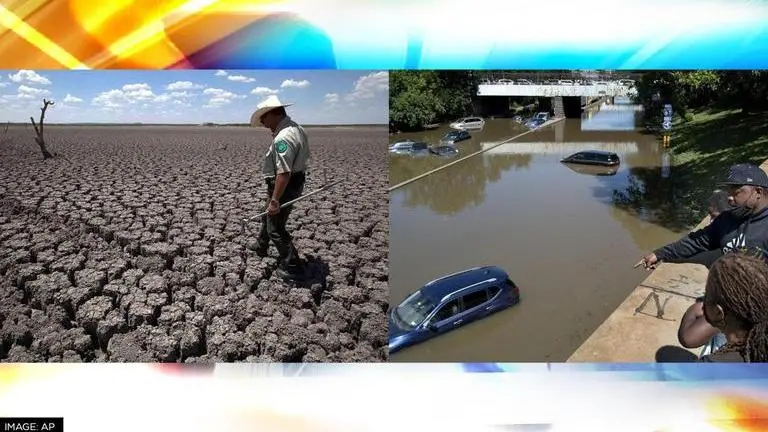Updated 6 October 2021 at 08:17 IST
UN report cautions against looming global water crisis & its shortage amid climate change
The UN says nearly 25 per cent of all cities worldwide are already facing frequent water shortages and 3.6 billion people have insufficient access to water.
- World News
- 3 min read

The United Nations specialised agency, World Meteorological Organization (WMO) has cautioned the world against climate change that elevates the danger of water-related disasters such as floods. It also warned that the number of people to be affected by water shortages is likely to rise in near future. According to the WMO's latest report titled 'The State of Climate Services 2021: Water', nearly 3.6 billion people worldwide have insufficient access to water for approximately one month each year in 2018, and this figure is estimated to surge to five billion by 2050.
“The situation is worsening by the fact that only 0.5 percent of the water on Earth is useable and available freshwater," the report said.
Water-related disasters becoming more common
The WMO report showed that water-related disasters like floods are becoming more common. It was reported that disasters related to floods have grown by 134 per cent since 2000 when compared to the preceding two decades, whereas during the same period the frequency and duration of droughts have also climbed by 29 per cent.
The highest number of deaths occurred mostly in Africa, highlighting the need for more efficient drought warning systems in that area. Drought has even caused the greatest economic losses in North America, Asia, and the Caribbean, according to the research. While, the majority of flood-related fatalities and financial damages have occurred in Asia last year, where heavy rains triggered severe floods in countries like China, India, Indonesia, Japan, Nepal, and Pakistan, AP reported.
The UN report also found that nearly 25 per cent of all cities worldwide are already facing frequent water shortages. It claims that the planet's total supplies of surface water, groundwater, and water found in soil, snow, and ice have decreased by 0.4 inches each year during the last two decades.
Advertisement
According to ANI, WMO Secretary-General Petteri Taalas stated, "Increasing temperatures are resulting in global and regional precipitation changes, leading to shifts in rainfall patterns and agricultural seasons, with a major impact on food security and human health and well-being." The WMO chief Taalas further informed that severe water-related events had happened last year, displacing millions of individuals and killing over hundreds in Asia, whereas over two billion people in Africa dwell in water crisis nations, facing lack of access to clean drinking water and hygiene.
Highlighting the critical role of water resources management to curb water-related catastrophes, the WMO has advised the countries, particularly small island nations, developing as well as least developed countries, to increase investment in integrated water resources management and in drought. The organisation also encouraged nations to support climate operations and to build early detection systems, and national level stakeholders to co-develop and implement climate services with information consumers to better assist water sector adaptability.
Advertisement
(Image: AP)
Published By : Anwesha Majumdar
Published On: 6 October 2021 at 08:17 IST
